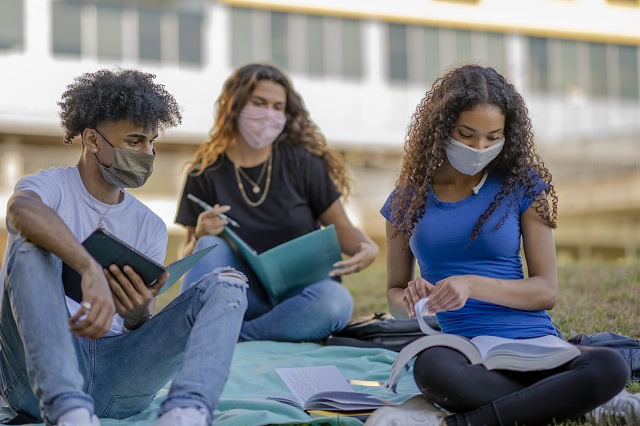
Credit: FatCamera / Getty Images
Young adults have often been criticized during the coronavirus pandemic. Now, as some colleges and universities open up their campuses for in-person and online classes, complaints and warnings to students are ratcheting up. But Julia Marcus, an infectious disease epidemiologist and assistant professor at Harvard Medical School, doesn’t believe that a punitive approach is the best way to reopen schools. She discusses a holistic public health strategy that she says will support students, instead of shaming them, and enlist their help in the fight against the spread of COVID-19.
Three Takeaways:
- Marcus thinks it’s questionable if colleges in areas with a lot of community spread can reopen for in-person instruction and stay open safely this fall, especially without sufficient testing for the novel coronavirus. She says too much of a burden has been placed on students to control their behavior and that it’s primarily the responsibility of administrators to maintain a low-risk environment for everyone on campus.
- Blaming students for risky decisions during the pandemic is toxic to public health, according to Marcus. She suggests that colleges develop a more compassionate approach and help students find alternative ways to be socially connected - promoting outdoor gatherings instead of crowded house parties, for example.
- Keeping students healthy isn’t just about protecting them from COVID-19, says Marcus. She is concerned that, much like in her own field of HIV research, there is too much focus on preventing infection at all costs, and she urges the consideration of competing risks such as students’ mental health.
More Reading:
- Check out Marcus’ articles in The Atlantic about the significant challenges associated with reopening colleges and universities.
- This freshman says she “lasted two weeks in the dorms.” Learn more about her difficult experience on campus - and why she doesn’t regret it - at the University of North Carolina at Chapel Hill.
- According to Inside Higher Ed, many colleges have been reversing their reopening plans. Find out why.

